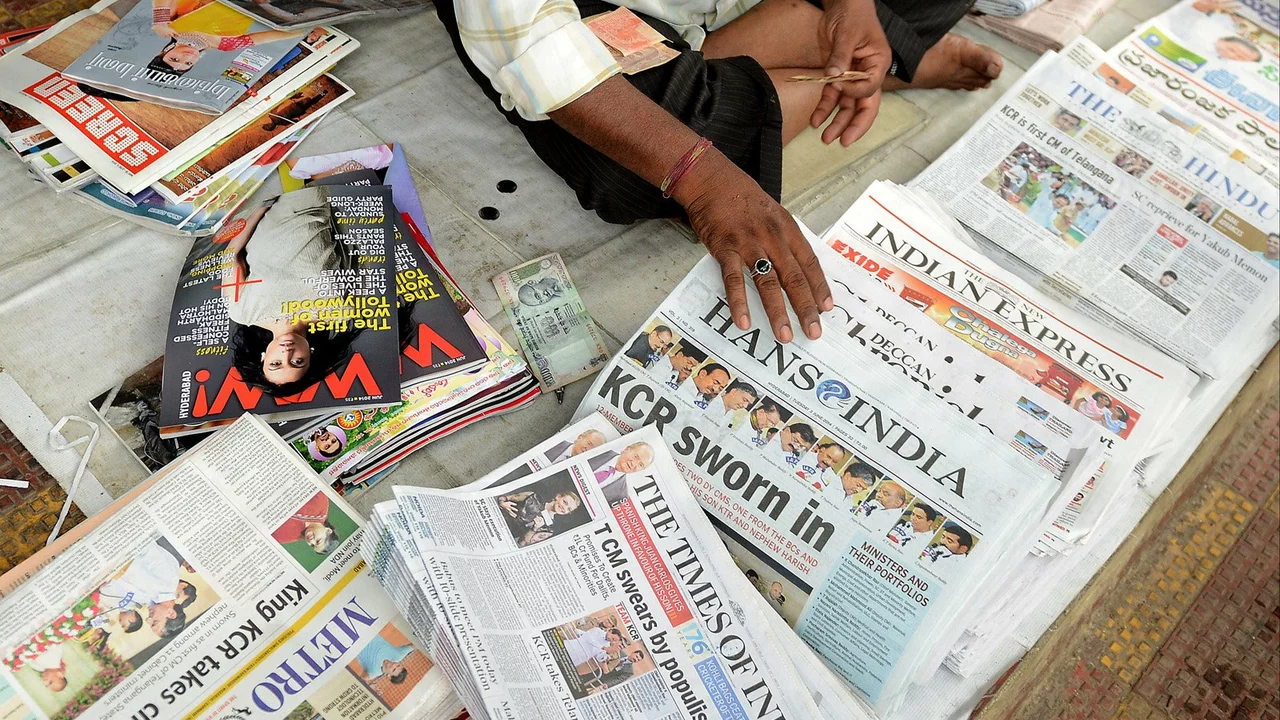The Sensationalization of Indian News
As an avid news consumer, I've noticed a disturbing trend in Indian news channels. The sensationalism and dramatic delivery have taken precedence over factual reporting and in-depth analysis. Every news story seems to be a breaking news event, with loud sound effects and flashy graphics to match. It feels more like a Hollywood action movie than a news program. This sensationalization of news is not just misleading, it's harmful. It creates an atmosphere of panic and fear, rather than informing viewers about the world around them. It's high time we demand better from our news channels.
Political Bias and Lack of Objectivity
Another major issue with Indian news channels is their blatant political bias. It's becoming increasingly difficult to find news channels that present information objectively, without taking sides. No matter what your political leanings are, it's important to get unbiased information to make informed decisions. Unfortunately, many Indian news channels seem to have forgotten this basic principle of journalism. They often present news stories in a way that supports their political affiliations, leading to a skewed representation of reality.
Irresponsible Reporting
Irresponsible reporting is another issue that plagues Indian news channels. Whether it's reporting on sensitive issues like communal tensions or jumping to conclusions without verifying facts, these news channels often fail to uphold journalistic integrity. This not only misleads the public but also contributes to the spreading of rumors and misinformation. As viewers, we deserve better. We deserve news channels that prioritize accuracy and responsible reporting over ratings and sensationalism.
Trivialization of Important Issues
Indian news channels also have a tendency to trivialize important issues. Instead of focusing on crucial matters like health, education, and social justice, they often give undue attention to celebrity gossip and sensational stories. This trivialization of important issues detracts from the serious problems our society faces and diverts public attention from matters that need urgent attention and action.
Over-reliance on Debates
The format of Indian news channels often revolves around debates. While debates can be a useful tool for understanding different perspectives, the way they are conducted on Indian news channels leaves much to be desired. Instead of facilitating constructive discussions, these debates often turn into shouting matches where panelists talk over each other, leaving viewers more confused than enlightened.
The Role of Advertisements
Advertisements play a big role in shaping the content of Indian news channels. These channels rely heavily on advertising revenue, which can influence the type of news they cover and how they present it. This can lead to a conflict of interest, where news channels prioritize advertiser-friendly content over important news stories. It's a troubling trend that undermines the credibility of these channels and their commitment to public service.
24/7 News Cycle
The 24/7 news cycle is another aspect of Indian news channels that can be problematic. With news being broadcast around the clock, channels are under constant pressure to fill airtime. This often leads to the repetition of the same news stories, sensationalism, and the inclusion of trivial and irrelevant content. The 24/7 news cycle can also lead to rushed and inaccurate reporting, as channels scramble to be the first to break news stories.
The Impact on Public Perception
The way Indian news channels present news has a significant impact on public perception. The sensationalism, political bias, and trivialization of important issues can shape public opinion in a harmful way. It can lead to a misinformed public, polarization, and a lack of trust in the media. This is particularly concerning in a democratic country like India, where informed citizens are crucial for the functioning of democracy.
Fighting for Better News Channels
Despite the issues, I believe there is still hope for Indian news channels. As consumers, we have the power to demand better. We can switch off channels that engage in sensationalism and biased reporting, and support those that prioritize factual, unbiased, and responsible journalism. We can also voice our concerns and demand accountability from these channels. By doing so, we can help bring about positive change in the Indian news landscape.
Conclusion: The Need for Media Literacy
In conclusion, while there are valid reasons to be frustrated with Indian news channels, it's also important for us as viewers to be media literate. We need to be able to evaluate the information presented to us critically, understand the biases and limitations of different news sources, and seek out diverse perspectives. This will enable us to navigate the complex media landscape effectively and make informed decisions. Let's not just hate Indian news channels; let's strive for a better, more responsible media.
